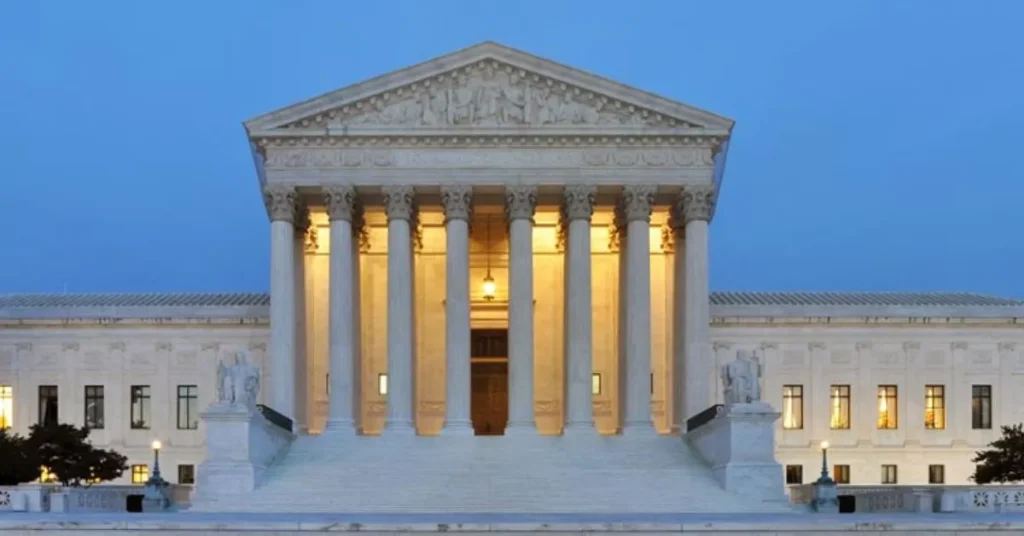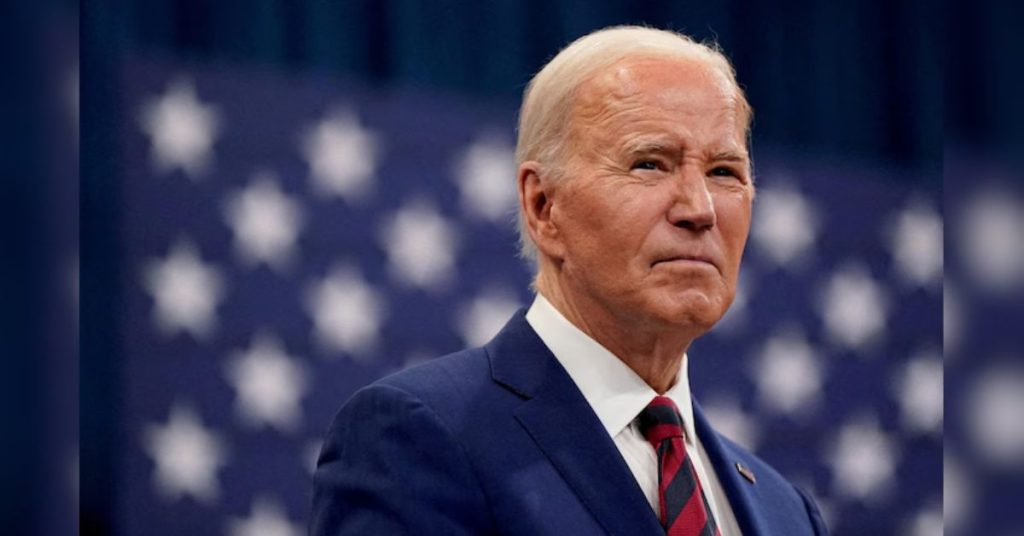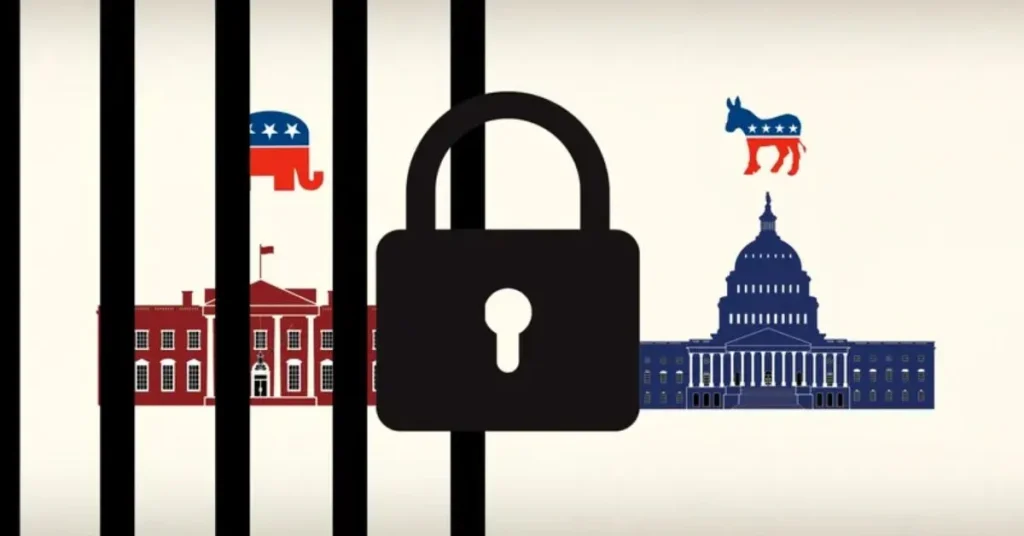The Supreme Court of the United States holds a unique and powerful position in the American political system. As the highest court in the land, it serves as the ultimate interpreter of the Constitution, with the authority to review and rule on the constitutionality of laws, actions by the government, and even its precedents. However, its role in U.S. politics is often a subject of intense debate.
Is the Supreme Court merely a neutral arbiter of the law, or does it play an active role in shaping political outcomes? This article explores the complex and often controversial role of the Supreme Court in US politics.
Historical Context: The Origins of Judicial Review
The role of the Supreme Court in U.S. politics was significantly defined by the landmark case of Marbury v. Madison (1803), which established the principle of judicial review.
Today the Michigan Supreme Court affirmed that in our state, unless the US Supreme Court rules otherwise, Donald Trump will be on the ballot for our Republican presidential primary on Feb. 27, 2024.
As I said in the @washingtonpost in September, as secretary of state in a key…
— Jocelyn Benson (@JocelynBenson) December 27, 2023
This principle gave the Court the power to declare laws passed by Congress and actions taken by the executive branch unconstitutional. This decision effectively positioned the Supreme Court as a co-equal branch of government, capable of influencing the direction of U.S. politics by upholding or striking down legislation.
The Supreme Court as a Guardian of the Constitution
One of the primary roles of the Supreme Court is to protect the Constitution and ensure that all laws and government actions comply with its principles. This role often involves making decisions on cases that have significant political implications.
For example, in Brown v. Board of Education (1954), the Court ruled that racial segregation in public schools was unconstitutional, a decision that had profound effects on the Civil Rights Movement and U.S. politics as a whole. Through such rulings, the Supreme Court acts as a guardian of civil liberties and rights, shaping the legal landscape of the nation.
The influence of ideology on the Supreme Court
While the Supreme Court is intended to be an impartial body, its decisions can be influenced by the ideologies of its justices. The appointment process for Supreme Court justices, which involves nomination by the President and confirmation by the Senate, is inherently political.
The Supreme Court is supposed to tell us what the Constitution means, not what judges or politicians want it to mean.
Democrats are mad that the Court is doing its job. pic.twitter.com/8D0JWY8KLW
— John Kennedy (@SenJohnKennedy) July 3, 2024
Presidents often choose nominees whose judicial philosophy aligns with their political views, leading to a Court that can reflect the ideological leanings of the prevailing political power. This has led to periods where the Court is seen as either conservative or liberal, affecting its rulings on key issues such as abortion, gun rights, and campaign finance.
The Supreme Court and Political Controversies
The Supreme Court has been at the center of numerous political controversies throughout history. Cases like Roe v. Wade (1973), which legalized abortion nationwide, and Citizens United v. FEC (2010), which allowed for unlimited political spending by corporations and unions, have had lasting impacts on U.S. politics and society.
Such decisions often spark intense debate and highlight the Court’s role in shaping public policy. The Court’s involvement in resolving contested elections, such as in Bush v. Gore (2000), further underscores its political significance.
Read also:
- U.S. Celebrities Who Are Making a Difference in 2024
- The Hottest U.S. Hashtags You Should Be Following
The Supreme Court’s Role in Checks and Balances
The U.S. political system is built on checks and balances, and the Supreme Court plays a crucial role in this framework. By reviewing the actions of the legislative and executive branches, the Court ensures that no branch of government exceeds its constitutional authority.
This role is vital in maintaining the balance of power within the federal government. However, the Court itself is not immune to checks; constitutional amendments can override its decisions, and its justices can be impeached, although this is rare.
The perception of the Supreme Court as a Political Actor
In recent years, the perception of the Supreme Court as a political actor has grown, particularly as the confirmation process for justices has become more contentious.
Robert Dahl on the role of #SupremeCourt in #US (Journal of Public Law)
“The main task of the Court is to confer legitimacy on the fundamental policies of the successful coalition. There are times when the coalition is unstable with respect to certain key policies…” 1/n— Davide Vittori (@DaveVitto) July 3, 2024
The Court’s decisions on hot-button issues, coupled with the increasing polarization of American politics, have led some to view the Court as another partisan institution rather than a neutral arbiter of the law. This perception poses challenges to the Court’s legitimacy and its ability to function effectively in its role.
The Future of the Supreme Court in U.S. Politics
The future role of the Supreme Court in U.S. politics will likely continue to be shaped by the ideological composition of its justices and the political climate of the nation.
As contentious issues such as voting rights, climate change, and healthcare continue to emerge, the Court’s decisions will play a critical role in determining the direction of U.S. policy. The debate over the Court’s role as either a guardian of the Constitution or a political actor is likely to persist, reflecting the ongoing tension between law and politics in the United States.
Conclusion
The Supreme Court occupies a pivotal position in U.S. politics, with the power to influence the nation’s legal and political landscape. While it is tasked with upholding the Constitution, its role is inevitably shaped by the political context in which it operates.
Whether viewed as a neutral arbiter or a political actor, the Supreme Court remains a vital institution in the American democratic system, with its decisions carrying profound implications for the country’s future.


